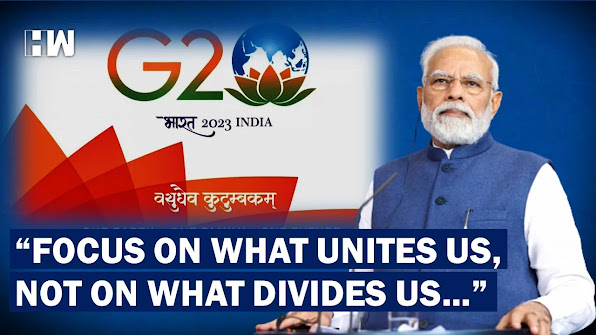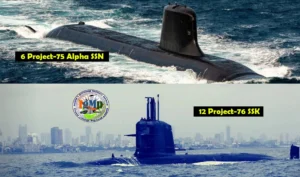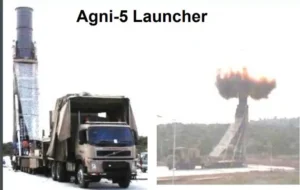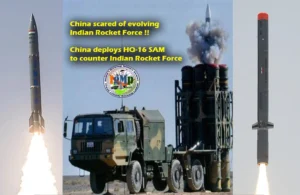Source : India Today
 |
| Representative Image (Image Source: HW English) |
The G20 Foreign Ministers’ meeting kicked off on Thursday at Rashtrapati Bhavan with a video message by Prime Minister Narendra Modi where he signalled the need for “unity of purpose” as well as “unity of action” at a time when “multilateralism” is in a state of “crisis”.
Speaking at the event, the prime minister said, “Post World War, global governance failed in both its mandates of preventing future wars and fostering international cooperation on issues of common interest.”
He underlined the theme of ‘One Earth, One Family, One Future’ for India’s G20 presidency, which would reflect the spirit of coming together for achieving common and concrete objectives.
“India’s G20 Presidency has tried to give a voice to the Global South. We should not allow issues that we cannot resolve together to come in the way of those we can,” said PM Modi.
External Affairs Minister S Jaishankar, as chair of the meeting, opened the first session by paying tribute to the victims of the earthquakes that shook Turkey and Syria. The gathering observed a minute’s silence.
The gathering proceeded to discuss the three topics on the agenda for Session I – Strengthening Multilateralism and Need for Reforms; Food and Energy Security; Development Cooperation.
At the outset, Jaishankar, agreeing with PM Modi, said, “There are pressing and systematic challenges, the future of multilateralism depends on our ability to strengthen it in a changing world.”
He added, “This grouping bears an exceptional responsibility. We first came together in the midst of a global economic crisis. And are actually confronting multiple challenges – impact of Covid 19 pandemic, concerns of fragile supply chains, the knock-on effect of ongoing conflicts, the anxiety of the debt crisis and disruption of climate events.”
.webp) |
| PM Modi addressing G20 Foreign Ministers at Rashtrapati Bhavan (President House) in New Delhi through LIVE video conference (Image Source: Ministry of External Affairs, Govt of India) |
Speaking of the differences and the schisms that were quite evident at the Bengaluru finance ministers’ meeting, minister Jaishankar pushed for consensus at the end of the day.
“Considering these issues we may not always be of one mind; in fact, there are some matters of sharp differences, yet we must find common ground and provide direction as that’s what the world expects of us,” he said.
In Bengaluru, leaders from countries, such as the US and France, wanted a condemnation of Moscow for the invasion, while host India felt the G20 was not the forum to address such an issue and wanted a more neutral term like “crisis” or a “challenge” to describe the “geopolitical situation”.
Russia and China protested at the use of the G20 platform for discussing political matters. While Indonesia managed a consensus document, India is working with G20 member states to ensure a consensus outcome document.
PM Modi also noted that many developing countries are struggling with unsustainable debt while trying to ensure food and energy security for their people. He also noted that it is developing countries that are most affected by global warming caused by rich countries. “India’s G20 Presidency has tried to give a voice to the Global South”, the Prime Minister remarked as he pointed out that no group can claim global leadership without listening to those most affected by its decisions.
Jaishankar, in his address, spoke of the Global South. “We heard their concerns directly in January through the Voice of Global South Summit. Such issues should not be relegated to the periphery of the international discourse,” he said.
Speaking of international organisations such as the United Nations, Jaishankar said, “The current global architecture is in its 8th decade. The member nations of UN have quadrupled; it neither reflects today’s politics, economics, demographics or aspirations.”
“Since 2005, we have heard sentiments of reforms at the highest level, but, as we all know, these have not materialised; the reasons are no secret either; the longer we put it off, the more the credibility of multilateralism stands eroded. Global decision-making must be democratised, if it has to have a future,” he added.
Expect fireworks during the first session with Russia, US, UK, European countries in the same room. In the wake of the Russia-Ukraine war, the conversations about food and energy security have become a priority.
“Food and energy security are immediate anxieties magnified by the current events. They do have long term repercussions and solutions and development cooperation is part of that larger solution. Our agenda for today’s discussion is food fuel and fertiliser as well as security; these are truly make-or-break issues for developing countries,” said Jaishankar.
India will also focus on resilient global supply chains to ensure stable economies. Stressing on the need to show resilience in societies, economies, healthcare systems and in infrastructure, PM Modi said, “The G20 has a critical role to play in finding the right balance between growth and efficiency on one hand and resilience on the other.”
The foreign ministers’ meeting aims to achieve “inclusive” and “action-oriented” resolutions while rising above differences, according to a press release issued by the Prime Minister’s Office.






